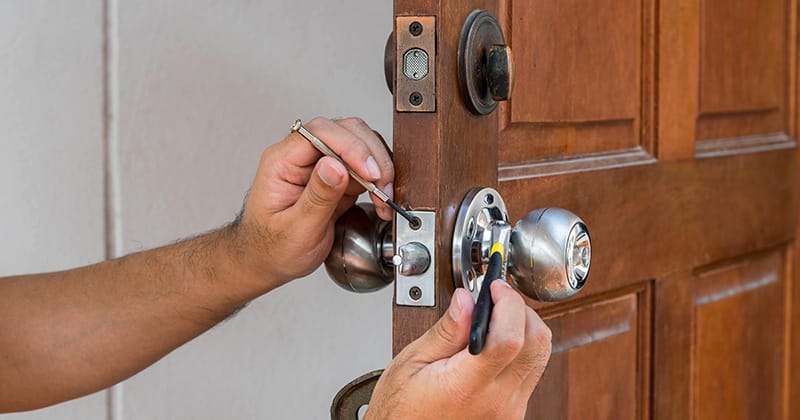The locksmithing industry, much like many other trades, has undergone significant changes over the years. What was once a straightforward profession involving simple mechanical locks and keys has evolved into a multifaceted field that embraces advanced technologies and security solutions. As the world becomes more connected and reliant on digital and automated systems, locksmiths must adapt and stay ahead of the curve to meet the growing demands of both residential and commercial clients. In this article, we will explore the key trends that are shaping the future of locksmithing and how they will impact the industry moving forward.
1. Integration of Smart Locks and Home Automation
The rise of smart home technology is one of the most influential trends impacting the locksmithing profession. Smart locks, which allow homeowners to control access to their property remotely via smartphones or key fobs, are becoming increasingly popular. These locks offer convenience, enhanced security features, and the ability to integrate with other smart home devices like security cameras, lights, and thermostats.
As more people adopt smart home systems, locksmiths must expand their skill sets to include the installation, maintenance, and troubleshooting of these advanced devices. Unlike traditional locks, smart locks rely on digital encryption and wireless communication, requiring locksmiths to be proficient in software and networking protocols.
In the future, locksmiths will be expected to offer solutions that not only secure the physical entry points but also provide seamless integration with entire home automation systems. This shift will require locksmiths to undergo additional training in networking, cybersecurity, and device compatibility to ensure that smart locks function effectively within a broader system.
2. Increased Demand for High-Security Systems
As technology continues to evolve, so do the threats to security. Businesses and homeowners are increasingly concerned about safeguarding their property, personal information, and valuable assets from theft and unauthorized access. This growing demand for high-security systems has led to the development of more advanced lock mechanisms.
High-security locks feature intricate designs that resist tampering and manipulation, including features such as anti-pick pins, reinforced materials, and complex keyways. In addition to traditional high-security mechanical locks, electronic and biometric access control systems are gaining popularity in both residential and commercial settings. These systems include fingerprint recognition, retina scans, and facial recognition, which offer an extra layer of security by ensuring that only authorized individuals gain access.
Locksmiths who specialize in high-security systems will need to stay updated on the latest developments in security technology, including new encryption methods, biometric advancements, and more sophisticated access control systems. With the increasing sophistication of these systems, locksmiths will also need to develop advanced skills in troubleshooting, repair, and installation.
3. The Growth of Mobile Locksmith Services
Another trend that is rapidly changing the locksmithing industry is the rise of mobile locksmith services. In an age where convenience is paramount, customers increasingly prefer locksmiths who can come to their location, whether they are locked out of their home or need urgent repairs on their vehicle’s ignition system.
Mobile locksmiths are equipped with all the necessary tools to perform a wide range of locksmithing services on-site, including key cutting, lock rekeying, and unlocking doors. This on-demand service is particularly useful in emergency situations, where time is of the essence. As more customers look for flexibility and fast service, mobile locksmithing will continue to grow in popularity.
In the future, locksmiths may integrate even more advanced tools into their mobile service offerings, such as portable diagnostic equipment for smart locks and access control systems. This will allow locksmiths to perform remote troubleshooting and repair, providing even greater convenience for customers.
4. Cybersecurity and Locksmithing
With the increasing reliance on digital devices and connected systems, cybersecurity has become an essential concern for both businesses and individuals. Locksmiths are no longer only concerned with physical locks but also with the security of digital systems, particularly in industries that deal with sensitive information, such as banking, healthcare, and government.
Locksmiths who specialize in digital security systems will need to understand encryption, network security, and other aspects of cybersecurity. They may be called upon to implement or troubleshoot security systems that protect against hacking, unauthorized access, and data breaches. As digital locks and smart systems grow in sophistication, locksmiths will play an integral role in helping their clients secure both their physical and digital assets.
Training in cybersecurity will be crucial for locksmiths looking to expand their expertise in this area. It is anticipated that locksmiths will become an essential part of the cybersecurity workforce, helping businesses protect their premises and digital infrastructure.
5. Automation and Keyless Entry Systems
The future of locksmithing is increasingly leaning towards automation and keyless entry systems. Many commercial and residential properties are adopting systems that eliminate the need for traditional keys altogether. Instead, individuals can access buildings using keycards, PIN codes, or even their smartphones.
This shift toward automation requires locksmiths to become proficient in installing and maintaining electronic keyless systems. As keyless entry becomes more common, locksmiths will need to develop expertise in programming, maintaining, and troubleshooting these systems. This could include advanced solutions like mobile credentialing, where individuals can unlock doors using their mobile phones instead of a traditional key.
In the future, locksmiths may also be called upon to help integrate other automated systems, such as elevators, gates, and even parking garages, into the broader access control infrastructure of a building. This shift represents a significant change in how locksmiths will approach their work, requiring them to have a deeper understanding of automation and digital systems.
6. The Importance of Licensing and Training
As the locksmithing industry evolves, there is a growing emphasis on the importance of proper licensing, certification, and ongoing training. With the increasing complexity of security systems, it’s essential for locksmiths to stay ahead of the latest developments and industry standards.
Professional locksmiths are expected to demonstrate their expertise through certification programs, which ensure that they are up to date with the latest tools, techniques, and security trends. In the future, licensing and certifications may become even more rigorous, requiring locksmiths to demonstrate proficiency in both traditional locksmithing and modern digital security technologies.
For those entering the field, continuous education and staying current with technological advancements will be crucial. The industry is evolving rapidly, and locksmiths who remain committed to learning and professional development will be well-positioned for success.
7. Sustainability in Locksmithing
Sustainability is an increasingly important issue across all industries, and locksmithing is no exception. As the world becomes more conscious of environmental impact, locksmiths will be expected to adopt greener practices in their work. This could involve using eco-friendly materials, reducing waste, and incorporating energy-efficient technologies in security systems.
For example, locksmiths may begin to focus on offering energy-efficient smart locks that help reduce power consumption or recycling old locks and materials instead of discarding them. Clients are also becoming more environmentally conscious, and locksmiths who emphasize sustainability in their practices will have a competitive edge.
Final Thoughts
The future of locksmithing is both exciting and challenging, as technology continues to advance and security needs become more complex. From smart locks and automation to cybersecurity and mobile services, locksmiths will need to adapt to a rapidly changing landscape. By staying informed and investing in ongoing training, locksmiths can ensure that they remain at the forefront of the industry and continue to meet the evolving needs of their customers. The future holds endless possibilities for those who are willing to embrace the new trends and technologies shaping the locksmithing world.




